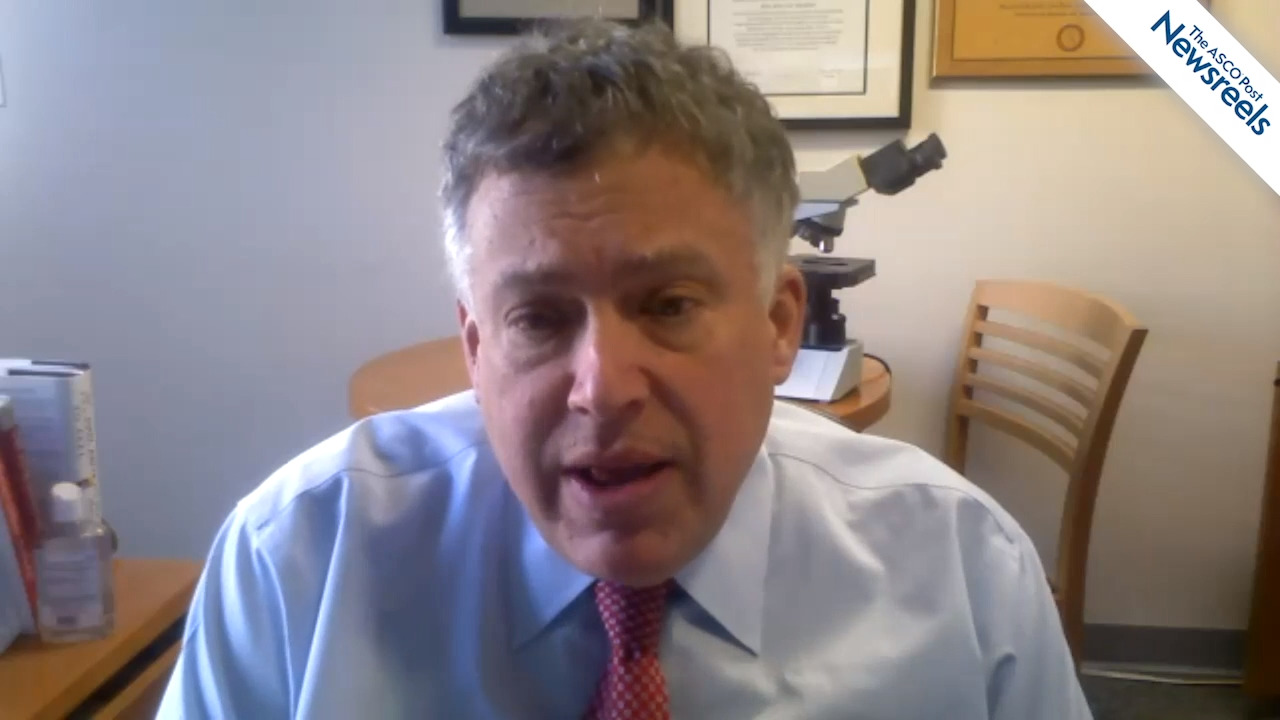Martin Reck, MD, PhD, on NSCLC: Pembrolizumab, Platinum Chemotherapy, and Radiotherapy in Advanced Disease
IASLC 2020 World Conference on Lung Cancer in Singapore
Martin Reck, MD, PhD, of the LungenClinic, discusses the results from KEYNOTE-799, which explored a new strategy to increase the intensity of treatment in patients with unresectable, locally advanced, stage III non–small cell lung cancer (Abstract OA02.03).
The ASCO Post Staff
Roy S. Herbst, MD, PhD, of Yale University, discusses results from the LUNG-MAP Master Protocol, which support the planned use of circulating tumor DNA for enrollment onto LUNG-MAP substudies, with a positive finding meriting inclusion in study; a negative finding, while considered inconclusive, requires the use of tissue samples (Abstract MA08.10).
The ASCO Post Staff
Dean Fennell, FRCP, PhD, of the University of Leicester, discusses phase III results from the CONFIRM trial, which sought a standard immunotherapy treatment to improve overall survival for patients with mesothelioma who have relapsed after taking pemetrexed and cisplatin. Globally, the incidence of mesothelioma is on the rise; in the United Kingdom alone, it has gone up nearly 500% since the 1970s (Abstract PS01.11).
The ASCO Post Staff
Fred R. Hirsch, MD, PhD, of Mount Sinai Medical Center, invites his colleagues to enroll their patients in a large prospective study, for which he serves as Principal Investigator. The study is searching for solutions for treating patients with lung cancer who also have the coronavirus, because so many experience an aggressive course of infection.
The ASCO Post Staff
Roy S. Herbst, MD, PhD, of Yale University, discusses two key abstracts from the ADAURA trial: the use of osimertinib as adjuvant therapy for resected EGFR-mutated non–small cell lung cancer; and patient-reported outcomes, which showed a benefit in disease-free survival and maintenance of health-related quality of life in patients with resected stage IB to IIIA disease (Abstracts OA06.04 and OA06.03).
The ASCO Post Staff
Jill Feldman, a patient advocate who has lost five family members to lung cancer and is herself a 12-year cancer survivor living with EGFR-positive disease, describes her family history of cancer, how she has worked with her physicians for more than a decade to survive her own diagnosis, and the message she would like all oncologists to hear.





